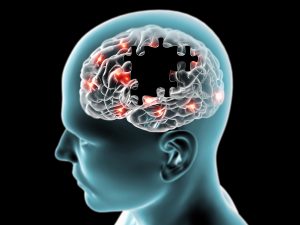In Alzheimer’s research, one particular protein looms large: plaque-forming amyloid-beta. Yet doctors now recognize that plaques can accumulate decades before symptoms appear. Recent clinical trials aimed at controlling or removing amyloid-beta have largely been disappointing.
Proteomics—analyzing in an “unbiased” way how all the proteins in the brain accumulate or disappear—could provide clues to alternative mechanisms and even treatment strategies, scientists think.
Researchers at Emory University School of Medicine have performed the first large-scale analysis of post-mortem brain proteins in Alzheimer’s, using systems biology tools previously reserved for gene expression data.
“The purpose of this project is to employ large-scale unbiased discovery approaches using postmortem human brains to identify changes in protein networks that are most closely linked to cognition and the hallmark neuropathology, especially those changes that occur in the earliest, preclinical stages of disease,” says Allan Levey, MD, PhD, chair of neurology at Emory University School of Medicine and director of Emory’s Alzheimer’s Disease Research Center.
Read more here.

